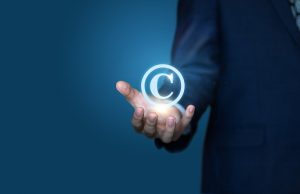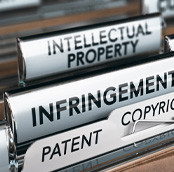Copyright Protection
 Under Article I, Section 8 of the U.S. Constitution, Congress has the power to grant authors the exclusive right to their respective writings. That legal principle is known as copyright, and it grants the owner exactly what the term suggests—the right to control the copying (which includes use) of a creative work for a specified period of time. The first American copyright law granted that exclusive right for 14 years, with the right to one 14-year extension, providing the owner was alive at the time of the renewal request. The current term of copyright is the life of the owner plus 70 years.
Under Article I, Section 8 of the U.S. Constitution, Congress has the power to grant authors the exclusive right to their respective writings. That legal principle is known as copyright, and it grants the owner exactly what the term suggests—the right to control the copying (which includes use) of a creative work for a specified period of time. The first American copyright law granted that exclusive right for 14 years, with the right to one 14-year extension, providing the owner was alive at the time of the renewal request. The current term of copyright is the life of the owner plus 70 years.
What Copyright Covers
The owner of a copyright has the right to reproduce a copyrighted work, prepare derivative works based upon it, distribute copies of it, publicly display or perform it, and control the activities of any third parties that seek to engage in any of those activities. If the work is a limited-edition work, the owner has additional rights.
What Can Be Copyrighted?
Copyrighting provides protection for original works of authorship, including literary works, musical works, graphic works, architectural works and other forms of artistic expression. Copyright is deemed to automatically exist once a creative work is “fixed” in tangible form. Although a common-law copyright is created when the work is fixed, registration of the copyright is a prerequisite for enforcement.
Underlying Ideas Not Protected
Copyrighting protects only the expression of an idea, not the idea itself. For example, if the author of a book describes a sales technique that made him successful, copyright law extends no protection to the sales technique itself but protects only the words set forth in the book.
Copyright Infringement
A copyright protects only against actual copying of a work. To establish copyright infringement, one must prove not only ownership of a valid registered copyright but also the fact that another person copied it. A copyright holder need not prove that the defendant intended to infringe the copyright, only that the defendant copied his or her creative work. If the defendant independently created the work, he or she is not liable for copyright infringement.
Fair-Use Exception
A copyright also can be permissibly used for the purposes of criticism, comment, news reporting, teaching scholarship, or research. The courts have yet to come up with a clear test for determining exactly what fits into this exception, but they consider whether the use is commercial, the nature of the copyrighted work, how much of the work was copied, and the effect of the use on the market. Parody and satire are also considered fair-use exceptions to copyright protection.
Recovery May Be Limited
The copyright owner is entitled to damages for infringement, along with attorney’s fees. An owner also might obtain injunction, seizure, and impoundment of infringing articles. If registration occurs within three months after publication of the work or before infringement of the work, the copyright owner is entitled to seek statutory damages, which means that he or she is not be obligated to prove actual damages and profits in order to recover. Often, however, small-business owners fail to register their copyright until there is a problem.
Alternatives
While copyrighting provides some protection for a business’ assets, it is not always the best form of protection for certain assets. In many cases, trademarks may be obtained to protect a product name, marketing phrase, or design. Copyrighted documents might also contain trade secrets. Trade secrets and trademarks are not subject to the fair-use doctrine and have other benefits not provided by copyright.
Other Resources
Connect with Top-rated Attorneys Near You
Sponsored Advertisement
Latest Article
What Is a Trust Fund? A Comprehensive Guide
A trust fund is a powerful tool that has stood the test of time. It is an essential instrument in modern wealth manageme... Read More
Arraignment: Meaning, Common Charges, & Process
Arraignment is a pivotal moment within the criminal justice system, marking the formal initiation of criminal proceeding... Read More
What Is Probable Cause? Definition and Examples
The Constitution protects you from being searched without a valid reason. But what exactly constitutes a valid reason? A... Read More
GETLEGAL®ATTORNEY DIRECTORY
Find Leading Attorneys in Your Area
NEED PROFESSIONAL HELP?
Talk to an Attorney
How It Works
- Briefly tell us about your case
- Provide your contact information
- Choose attorneys to contact you





